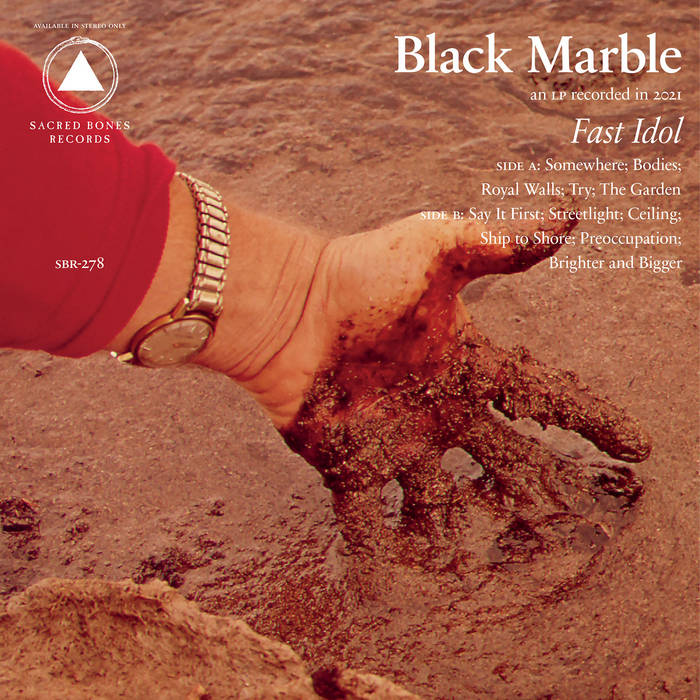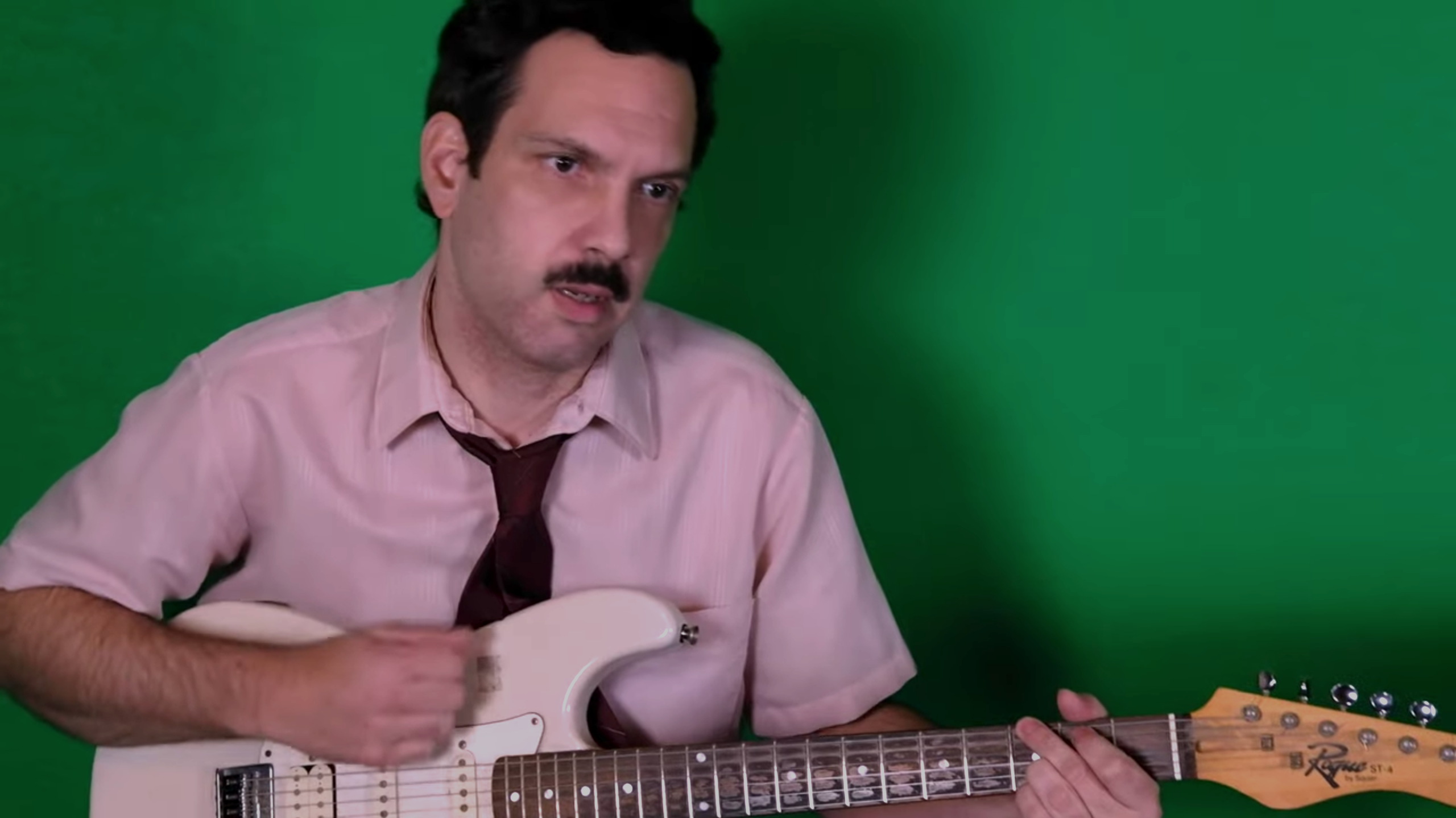Black Marble, the project of Chris Stewart, may have relocated to LA, but his music still pulses with the essence of New York’s underground. Stewart blends vintage 80s electronics with a modern edge, creating a sound that’s both introspective and distant, much like the solitude one can feel in a crowded city. His latest album, Fast Idol, released on October 22, 2021, via Sacred Bones, merges coldwave nostalgia with forward-thinking rhythms, offering a moody soundtrack for those insular moments where isolation and reflection intersect. The lyrics capture a sense of ambiguity and inner tension, tapping into the uncertainty of today’s world.
What realizations or changes in perspective did you experience while working on your last record, “Fast Idol”?

Well, I think what I was feeling while working on the last record was that things happening in the States were unexpected. It was changing my opinion of who people really were, and who we really are is different from what I thought. I feel like we’ve all had to grow up a little and see, well, some people were already grown up, but I can speak for myself when I say I had to mature and confront a sort of seedy underbelly of society that I wasn’t necessarily aware of. I’m not a naive person, but I just didn’t think some of these elements existed or that certain things could happen in this country.
Your album’s moody, self-reflective vibe really resonates with me. Living in a big city like New York, I connect with that feeling of loneliness despite being surrounded by people. Now that you’ve been in LA for a while, does New York still influence that aspect of your music, or is it something that comes from any big city?
I think it can happen in any big city, but part of it is just my personality. Even as a kid, I spent a lot of time alone, drawing, and got comfortable with being by myself. That’s still true today. People can get really lonely in New York because there are so many people around, but they’re not really paying attention to you—it’s like they’re part of the background. I’ve always liked that about New York. That sense of isolation and being in your own world definitely influences my music. I create for people in those moments of solitude, whether they’re on the train or trying to tune out the world. It’s meant to be a soundtrack for those insular moments.
I can totally feel that, and aside from the mood, your songs have these great, memorable lines. Like, I found myself humming lyrics from your album all the time. Do those lines come to you in the moment, or are they more reflective, something you work on over time?
It’s hard to explain, but I pull from my subconscious. I go through a lot of phrases that don’t work before I find the ones I like. Some people seem to know exactly what they want to say or have lyrics written down in a notebook, but I’m not like that. For me, it’s about fitting the cadence and the syllables into the melody. I might change the lyrics 50 times before I’m happy with them. Sometimes I’ll stumble on a phrase that changes the whole meaning of a song, and I’ll go back and adjust everything else to fit that new direction.
That’s interesting—it sounds like a process of constantly refining and finding the right feel.
Exactly, it’s like ironing out a little bit at a time until the whole thing fits. Sometimes I’ll start with gibberish just to figure out the rhythm or syllables and then work from there. It’s a bit like William Burroughs’ cut-up technique, rearranging things until it makes sense. Once I figure out what I’m really trying to say, I edit to sharpen the focus. I’m always looking for phrases with weight, ones that can have multiple layers of meaning. If something feels “pretty good,” it’s not enough—I need it to feel great. And sometimes that takes a while.
You mentioned that writing lyrics isn’t just about saying whatever comes to mind, but really trying to find what something truly means. That’s such an interesting way to look at it. Can you talk more about how that process influences your songwriting?
Well, I think that I can’t fully put my finger on exactly what sonic fingerprint or territory I’m trying to use to get across the feeling I want. I sort of have an idea, but not 100%. In a way, that keeps me focused on something—there’s this north star I’m aiming towards. Meanwhile, everything I’m creating can’t help but appeal to me. Unless I’m willing to put something out there that I don’t like, which I’m not. So everything ends up being something I like.
Those are kind of like two guardrails that keep everything seeming like a Black Marble song. I trust that if I use those as guidelines, I can explore different ideas in rhythm, meter, melody, and all the other nuts and bolts of how to construct a song. Even when I write something and demo songs, sometimes I’ll realize, “I don’t know what that is, but it doesn’t work for whatever this is,” and I move on.
Let’s dive into your music a bit. One thing I really admire about Black Marble is how you manage to keep expanding and evolving the sound while maintaining the core aesthetic. How do you keep discovering new directions in your music, especially when you’re using 40-year-old electronic instruments?
I think there’s almost a cinematic quality to it, with an off-kilter sense where it feels like there’s something you don’t have immediate access to. Like maybe it’s coming through a bad speaker, or it was a tape that fell out of someone’s backpack and got stepped on. There are little obstacles, but hopefully, they add to the sound instead of being unpleasant. I’m not trying to create noise music or unwanted sound. I want to create sounds people gravitate toward, but I don’t always try to create the most pure version of them. I think that interference and distance is part of what makes it feel like I made it. It’s that sensibility that I think is important.
It’s impressive how each album feels fresh, even within that framework. Do you think that sense of not fully being able to put your finger on the “sonic fingerprint” is what keeps the music feeling exploratory and new?
I definitely think that’s part of it. Trying to figure out what exactly I’m aiming for is what gives me material to work with. That exploration is essential.
I know we’re a bit over time, so I’ll wrap it up soon, but I wanted to ask: What’s on your holiday playlist? What are you listening to this Christmas season?
Yeah, I’m listening to what everyone listens to. I’ve got Paul McCartney’s “Wonderful Christmas Time” in there—you’ve gotta have that. “Last Christmas” by Wham is a big favorite too. The Eurythmics also made a Christmas album, which I’ve been listening to. And the Ramones’ “Merry Christmas.” You know, all the usual stuff for someone who’s in a band. I feel like “Wonderful Christmas Time” is the go-to Christmas song for people in bands or big music fans. If you polled a hundred musicians, I bet it would win, but maybe that’s just me.
